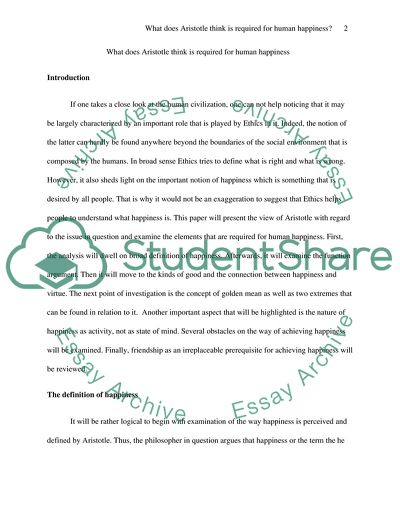Cite this document
(What Does Aristotle Think Is Required for Human Happiness Essay Example | Topics and Well Written Essays - 2500 words, n.d.)
What Does Aristotle Think Is Required for Human Happiness Essay Example | Topics and Well Written Essays - 2500 words. https://studentshare.org/philosophy/1874800-what-does-aristotle-think-is-required-for-human-happiness-and-why
What Does Aristotle Think Is Required for Human Happiness Essay Example | Topics and Well Written Essays - 2500 words. https://studentshare.org/philosophy/1874800-what-does-aristotle-think-is-required-for-human-happiness-and-why
(What Does Aristotle Think Is Required for Human Happiness Essay Example | Topics and Well Written Essays - 2500 Words)
What Does Aristotle Think Is Required for Human Happiness Essay Example | Topics and Well Written Essays - 2500 Words. https://studentshare.org/philosophy/1874800-what-does-aristotle-think-is-required-for-human-happiness-and-why.
What Does Aristotle Think Is Required for Human Happiness Essay Example | Topics and Well Written Essays - 2500 Words. https://studentshare.org/philosophy/1874800-what-does-aristotle-think-is-required-for-human-happiness-and-why.
“What Does Aristotle Think Is Required for Human Happiness Essay Example | Topics and Well Written Essays - 2500 Words”. https://studentshare.org/philosophy/1874800-what-does-aristotle-think-is-required-for-human-happiness-and-why.


